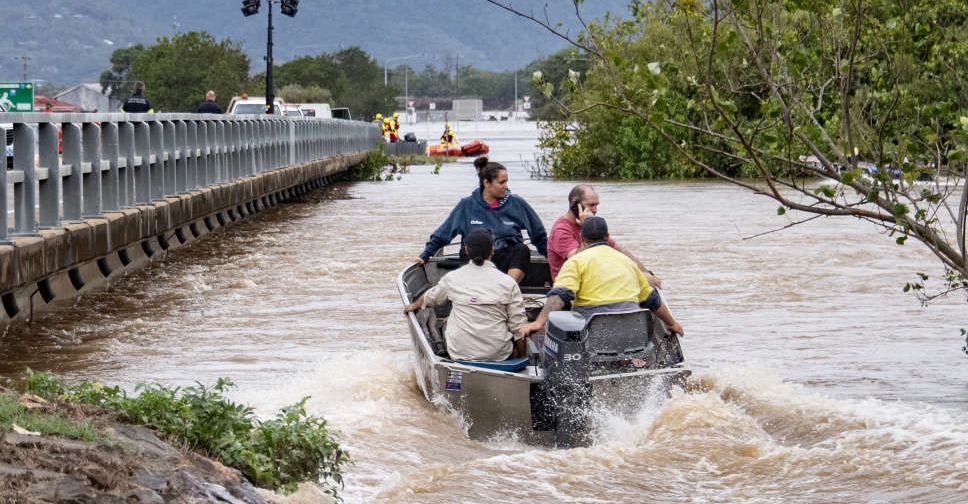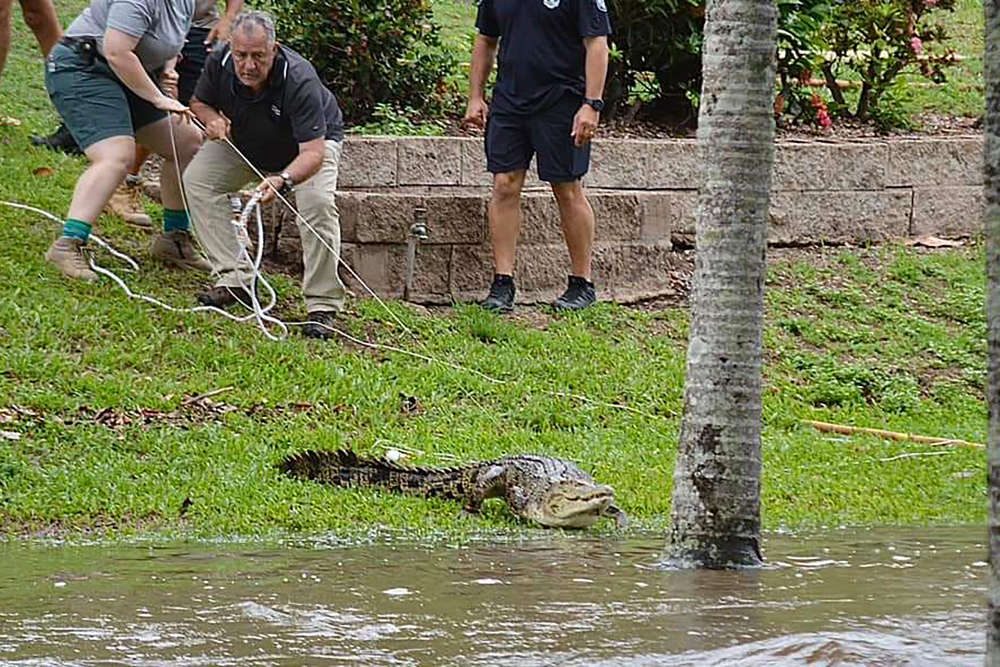
Floods caused by heavy rain in the wake of former Tropical Cyclone Jasper cut off several towns popular with tourists in Australia's northeast along the Great Barrier Reef on Monday, with a crocodile being captured from a storm drain.
Jasper dumped months' worth of rain in the far north of Queensland state over the weekend, forcing some people to flee homes and crowd on rooftops to escape fast-rising rivers.
"The problem is the rain won't stop and until it eases up, we can't get aerial support into remote places," the state's premier, Steven Miles, told ABC Television. "We see a lot of natural disasters and this is just about the worst I can remember."
Jasper was downgraded to a tropical low after leaving a trail of destruction across the state last week.
In Ingham, a town of about 5,000 inundated by floods, conservation officials captured a 2.8-m-long crocodile in a storm drain by a gas station, media clips showed.
Crocodile sightings in north Queensland are more common in rivers, lagoons and swamps in rural areas, however.

Cairns, the gateway town to the Great Barrier Reef and home to more than 150,000 people, received about 600 mm of rain over 40 hours through early Monday. That is more than triple the December mean of 182 mm.
All flights from Cairns airport were cancelled or postponed, with social media images showing planes partially submerged on the tarmac.
Water pumps have been draining water since Sunday but "it's still not keeping up with the volume of water that came in," Richard Barker, the airport's chief executive, told Sky News.
EL NINO INFLUENCE
Weather officials forecast more rain, as Jasper is likely to persist through Monday, with some regions expected to get 300 mm of rain within six hours. Major flood warnings have gone out, with rivers set to break records dating to 1977.
More than 14,000 properties regionwide have lost power.
Prime Minister Anthony Albanese said defence forces were on standby to launch rescue and relief efforts.
Australia is now experiencing an El Nino weather phenomenon, which can provoke extremes ranging from wildfires to tropical cyclones and prolonged droughts.
As the northeast battles floods, Australia's southeast, in contrast, is on bushfire alert with temperatures expected to top 40 degrees Celsius on Tuesday in some Sydney suburbs.

 UK inquiry finds 'chilling' cover-up of infected blood scandal
UK inquiry finds 'chilling' cover-up of infected blood scandal
 Iranian President Raisi killed in helicopter accident, state media says
Iranian President Raisi killed in helicopter accident, state media says
 ICC prosecutor seeks arrest warrants for Israeli, Hamas leaders
ICC prosecutor seeks arrest warrants for Israeli, Hamas leaders
 Assange given permission to appeal against US extradition
Assange given permission to appeal against US extradition
 Israel intends to broaden Rafah sweep, Defence Minister tells US
Israel intends to broaden Rafah sweep, Defence Minister tells US




